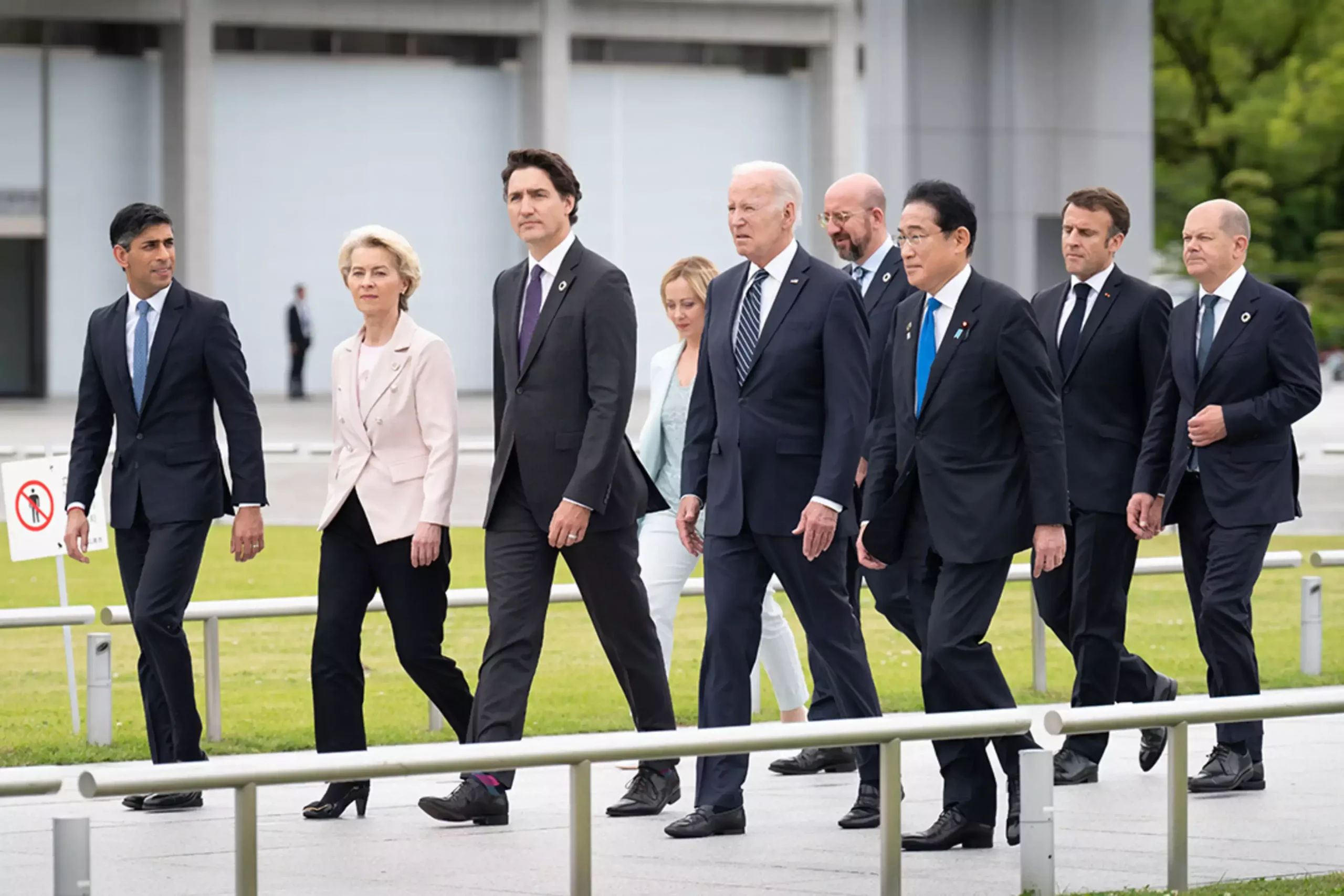
A major drone attack by Iran against Israel overnight prompted the leaders of the Group of Seven (G7) to issue a strong warning. As tensions in the Middle East reach a breaking point, the G7 has called for a de-escalation of hostilities. Still, they also maintain that they “stand ready to take further measures now and in response to further destabilizing initiatives” in the wake of Iran’s unprecedented attack on Israel.
Following an extraordinary meeting on Sunday, the US and the UK jointly denounced Tehran’s strikes and declared their “full solidarity” with Israel in a statement.
After Iran stated it had launched retaliatory action against its long-standing drones, Prime Minister Rishi Sunak earlier confirmed that British RAF fighters had shot down several Iranian drones.
According to the G7 statement made available through Downing Street, “We the leaders of the G7, unequivocally condemn in the strongest terms Iran’s direct and unprecedented attack against Israel.
“Iran fired hundreds of drones and missiles towards Israel. Israel, with the help of its partners, defeated the attack. We express our full solidarity and support to Israel and its people and reaffirm our commitment towards its security.
“With its actions, Iran has further stepped toward the destabilisation of the region and risks provoking an uncontrollable regional escalation. This must be avoided.
“We will continue to work to stabilise the situation and avoid further escalation. In this spirit, we demand that Iran and its proxies cease their attacks, and we stand ready to take further measures now and in response to further destabilising initiatives.
“We will also strengthen our cooperation to end the crisis in Gaza, including by continuing to work towards an immediate and sustainable ceasefire and the release of hostages by Hamas, and deliver increased humanitarian assistance to Palestinians in need.”
In an attack that triggered air raid sirens all around the nation, Israel claimed that Iran launched 170 drones, over 30 cruise missiles, and at least 120 ballistic missiles.
Israel reopened its airspace by Sunday morning, according to Tehran, which declared the end of the attack.
The assault was launched in response to an earlier this month strike that killed two Iranian generals and was generally attributed to Israel on an Iranian consulate building in Syria.
Despite animosity stretching back to the 1979 Islamic Revolution, this is Tehran’s first direct military attack on Israel.
The latest event heightened decades-long tensions in the Middle East as the fighting in Gaza forced years of shadow warfare between the two adversaries into the open.
Please don’t forget to “Allow the notification” so you will be the first to get our gist when we publish it.
Drop your comment in the section below, and don’t forget to share the post.







